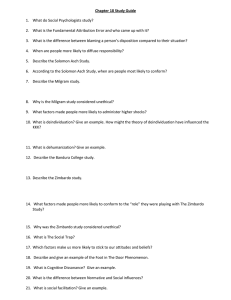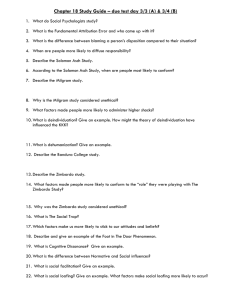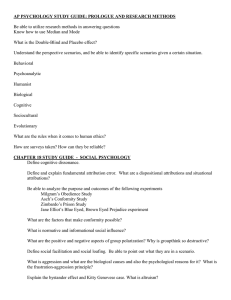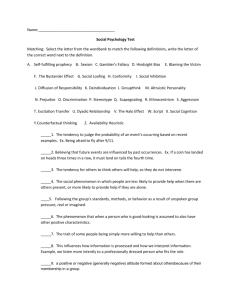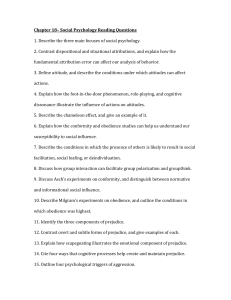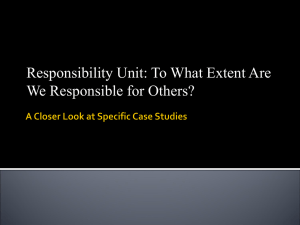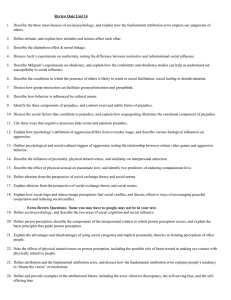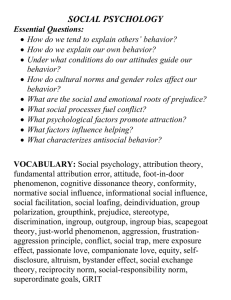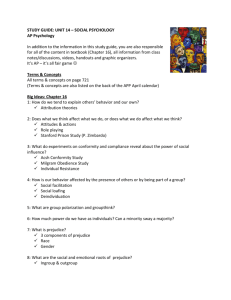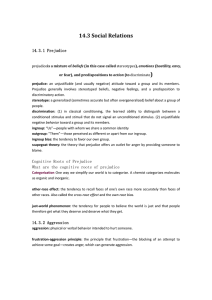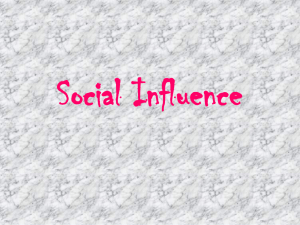Study Guide - Social Psychology
advertisement
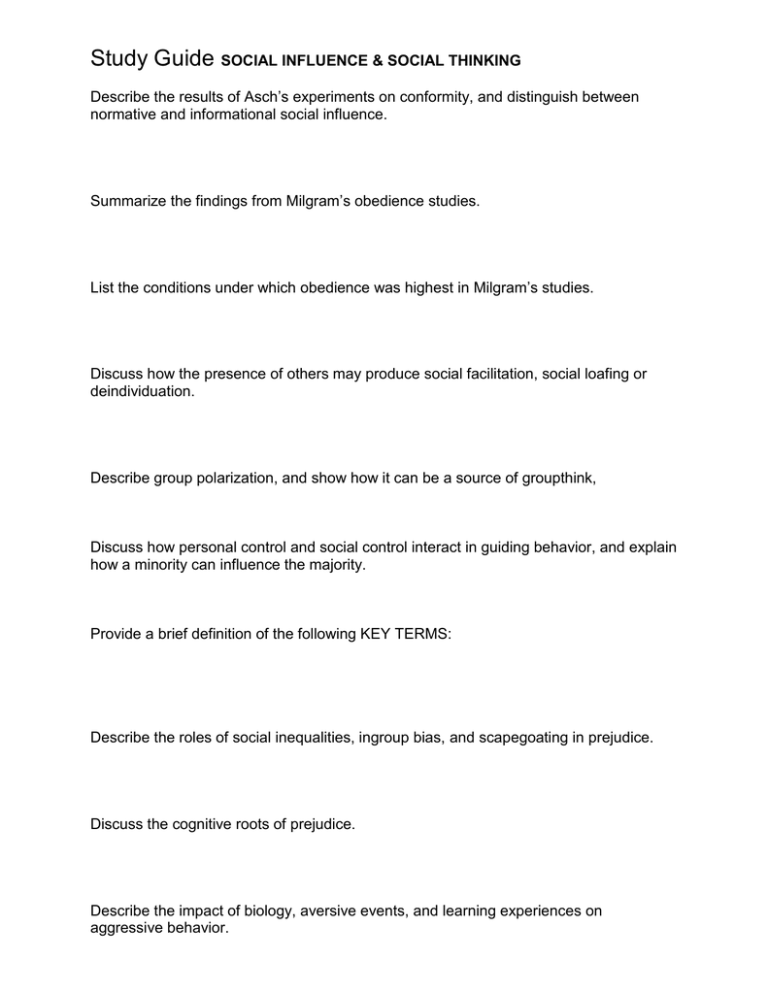
Study Guide SOCIAL INFLUENCE & SOCIAL THINKING Describe the results of Asch’s experiments on conformity, and distinguish between normative and informational social influence. Summarize the findings from Milgram’s obedience studies. List the conditions under which obedience was highest in Milgram’s studies. Discuss how the presence of others may produce social facilitation, social loafing or deindividuation. Describe group polarization, and show how it can be a source of groupthink, Discuss how personal control and social control interact in guiding behavior, and explain how a minority can influence the majority. Provide a brief definition of the following KEY TERMS: Describe the roles of social inequalities, ingroup bias, and scapegoating in prejudice. Discuss the cognitive roots of prejudice. Describe the impact of biology, aversive events, and learning experiences on aggressive behavior. Discuss the media effect on sexual violence. Comment on the impression of women that pornography frequently conveys and the effects this impression has on attitudes and behavior. Summarize the findings of the Zillmann and Bryant study on the effects of pornography on attitudes toward rape. Identify factors that fuel conflict. Identify the determinants of social attraction. Distinguish between passionate and companionate love. Explain what the reward theory of attraction is and how it can account for the three predictors of liking – proximity, attractiveness and similarity. Describe and explain the bystander effect. Discuss how social exchange theory and social norms explain altruism. Identify the circumstances in which a person is most likely to offer help during an emergency. Discuss effective ways of resolving conflict. Provide a brief definition of the following KEY TERMS: Social psychology Conformity Normative social influence Informational social influence Social facilitation Social loafing Deindividuation Group polarization Group think Prejudice Stereotype Discrimination Scapegoat theory Just-world phenomenon Aggression Conflict Social trap Mere exposure effect Passionate love Companionate love Altruism Bystander effect Social exchange theory Superordinate goals GRIT
